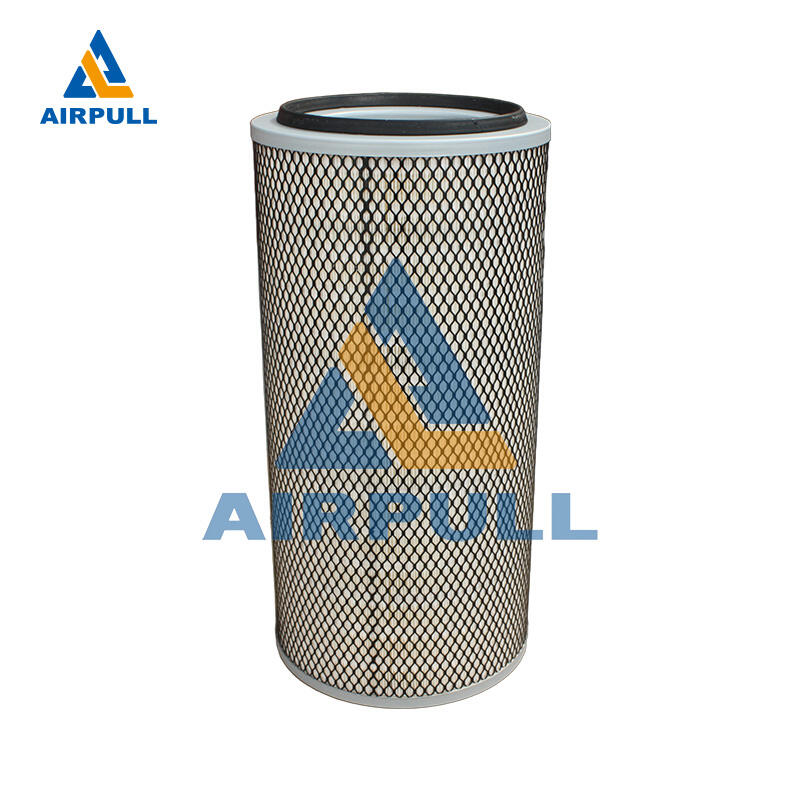Understanding the Critical Role of Filtration in Air Compression Systems
Air compressor air filters serve as the first line of defense in protecting your valuable compression equipment and ensuring the delivery of clean, high-quality compressed air. These essential components prevent contaminants, dust, and harmful particles from entering the system, ultimately extending equipment life and maintaining operational efficiency. Whether you're operating an industrial facility or managing a small workshop, selecting the right filtration solution can significantly impact your system's performance and longevity.
The importance of proper filtration cannot be overstated, as contaminated air can lead to expensive repairs, reduced efficiency, and compromised end products. By investing time in understanding and selecting the appropriate air compressor air filter, you're not just protecting your equipment – you're safeguarding your entire operation's productivity and quality standards.
Essential Components of Air Compressor Filtration
Primary Filtration Elements
The foundation of any effective air compression system begins with the intake filter. This primary air compressor air filter captures larger particles and serves as the initial barrier against environmental contamination. Modern intake filters typically feature multiple layers of filtration media, each designed to trap different sizes of particulates while maintaining optimal airflow.
Beyond the basic filtering element, advanced systems may incorporate specialized materials such as activated carbon or molecular sieves to address specific contaminants. These materials work together to ensure comprehensive protection while minimizing pressure drop across the filtration system.
Secondary Filtration Systems
Downstream filtration components play a crucial role in maintaining air quality throughout the system. These may include coalescent filters for removing oil aerosols, vapor removal filters for eliminating moisture, and final particulate filters for capturing any remaining contaminants. Each stage of filtration contributes to the overall performance and reliability of your compressed air system.
The selection of secondary filters should be based on your specific application requirements and the quality of air needed for your processes. Industries such as food processing or pharmaceutical manufacturing may require additional stages of filtration to meet stringent quality standards.
Technical Specifications and Selection Criteria
Filter Efficiency Ratings
Understanding filter efficiency ratings is crucial when selecting an air compressor air filter. These ratings indicate the filter's ability to capture particles of various sizes, typically measured in microns. High-efficiency filters may offer retention rates of 99.99% or higher for particles as small as 0.01 microns, but this level of filtration comes with increased energy costs due to higher pressure drops.
Consider your application's specific requirements when evaluating efficiency ratings. While some operations may require ultra-high efficiency filtration, others might achieve optimal performance with standard-grade filters that balance filtration efficiency with energy consumption.
Flow Rate Considerations
Proper sizing of your air compressor air filter is essential for maintaining system efficiency. A filter that's too small will create excessive pressure drop, while an oversized filter represents an unnecessary investment. Calculate your system's maximum flow rate and factor in potential future capacity needs when selecting filter size.
Remember to account for operating pressure, temperature, and environmental conditions when determining the appropriate flow capacity. These factors can significantly impact filter performance and longevity.
Maintenance and Performance Optimization
Regular Monitoring Practices
Implementing a robust monitoring system for your air compressor air filter is essential for maintaining optimal performance. Regular pressure differential measurements can indicate when filter elements are becoming loaded and require replacement. Modern systems often include electronic monitoring capabilities that provide real-time data on filter condition and performance.
Establish a baseline for normal operation and track changes over time. This proactive approach allows you to identify potential issues before they impact system performance or lead to unexpected downtime.
Replacement Schedules and Best Practices
Developing a comprehensive maintenance schedule for your filtration system helps ensure consistent performance and prevents unexpected failures. While manufacturer recommendations provide a starting point, actual replacement intervals should be based on your specific operating conditions and monitoring results.
Keep detailed records of filter replacements, pressure drops, and any unusual conditions observed during maintenance. This information becomes invaluable for optimizing your maintenance schedule and troubleshooting potential issues.
Environmental and Economic Considerations
Energy Efficiency Impact
The selection of an air compressor air filter can significantly influence your system's energy consumption. High-quality filters designed for low pressure drop can reduce the energy required to maintain desired air flow rates. Consider the long-term operating costs when evaluating different filtration options.
Modern filter designs often incorporate energy-efficient features such as deep-pleated media and optimized flow paths. These innovations help minimize the energy penalty associated with filtration while maintaining high performance standards.
Sustainability Factors
Environmental considerations are increasingly important in filter selection. Look for options that offer extended service life and use environmentally friendly materials. Some manufacturers now offer recyclable filter elements or programs for responsible disposal of used filters.
Consider the total environmental impact of your filtration system, including energy consumption, waste generation, and the potential for recycling or reconditioning filter components.
Frequently Asked Questions
How often should I replace my air compressor air filter?
The replacement frequency depends on various factors including operating conditions, environment, and usage patterns. Generally, filters should be replaced when pressure differential reaches manufacturer-specified limits or at least annually. Regular monitoring of filter condition and performance will help determine the optimal replacement schedule for your specific application.
What happens if I don't maintain my air compressor filter properly?
Neglecting filter maintenance can lead to reduced system efficiency, increased energy costs, and potential damage to downstream equipment. Contaminated air can cause accelerated wear on compressor components, reduced air quality, and ultimately result in system failure or expensive repairs.
Can I clean and reuse my air compressor filter?
While some pre-filters can be cleaned, most high-efficiency filter elements are designed for single use and should be replaced when they reach their service limit. Attempting to clean disposable filters can damage the filter media and compromise its effectiveness, potentially leading to system contamination.





